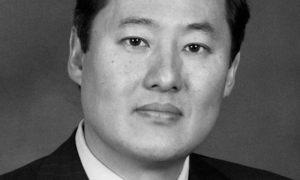Critics of the war on terrorism and the war in Iraq charge that President Bush has infringed on the Constitution. They say it's up to Congress to approve the course of the Iraq War, the interrogation policies at the Guantanamo Bay base and the wiretap surveillance by the National Security Agency.
Yet this view misreads the Constitution's allocation of war-making powers between the executive and legislative branches. As commander-in-chief and chief executive, the president has broad constitutional authority -- indeed, a duty to protect the nation from foreign attack. He requires no approval to take the nation to war if it's attacked.
The framers of the Constitution designed the presidency to wield power quickly and decisively. As they understood it, Congress could counter presidential decisions in foreign affairs through its powers over funding or domestic legislation.
A state of war doesn't mean that checks and balances don't exist, only that Congress usually allows the president to act alone because it agrees with executive policy or lacks the political will to use its own constitutional powers.
Much of the confusion concerns the provision in Article I, Section 8 of the Constitution, which says that Congress alone has the power to declare war. In fact, a comprehensive reading of the text and structure of the Constitution demonstrates that it doesn't mandate a specific process for waging war.
James Madison insisted on the phrase "declare war" versus "make war" because he wanted presidents to have the flexibility to repel sudden attacks. In fact, the Constitution distinguishes between "declaring war," "engaging in war" (Article I, Section 10, Clause 3) and "levying war" (Article III, Section 3, Clause 1).
In short, to declare war isn't the same as to start fighting a war. Congress has declared war just five times in its history. And only one of them, the War of 1812, constituted an affirmative declaration of war. The other four -- the Mexican-American War, the Spanish-American War, World War I and World War II -- merely declared the prior existence of a state of war.
Earlier in American history, a declaration of war had the practical effect of getting Congress on board to fund the building of an army to prosecute the war. Today, we have a large fighting force at the ready, and the main effect of declaring war would be to alter legal relationships between subjects of warring nations and to trigger certain rights, privileges and protections under the laws of war.
Declarations provide the legal grounds for war and the opportunity for enemy nations to make amends and, thereby, avoid the scourge of war.
The power to declare war is not a check on executive power to engage in hostilities. It's designed to address these legal issues and others in times of conflict.
It serves notice to the enemy's allies that they could be viewed as co-belligerents and that their shipping is subject to capture. It means our citizens could be prosecuted for dealing with the enemy, that internment or expulsion of enemy aliens is possible and that diplomatic relations have been cut off.
Once we're at war, the Constitution leaves the means of how the war is prosecuted almost entirely in the president's hands. Still, this power isn't absolute, and Congress retains a critical check on it -- the power to defund initiatives with which it doesn't agree.
As for the question of the NSA's wiretapping program, Richard Posner, a federal judge, says that, of course, a president's inherent wartime authority as commander-in-chief encompasses using a range of intelligence-gathering techniques.
In an era of terrorism, rogue nations and weapons of mass destruction, it's imperative to get correct answers to questions concerning foreign-policy authority.
But we should look skeptically at claims that radical changes in the way we make or declare war would solve our problems -- even those stemming from poor judgment, unforeseen circumstances and bad luck.
John Yoo, a law professor at the University of California, Berkeley, is a contributor to "The Heritage Guide to the Constitution."
First Appeared in the (Riverside) Press Enterprise



